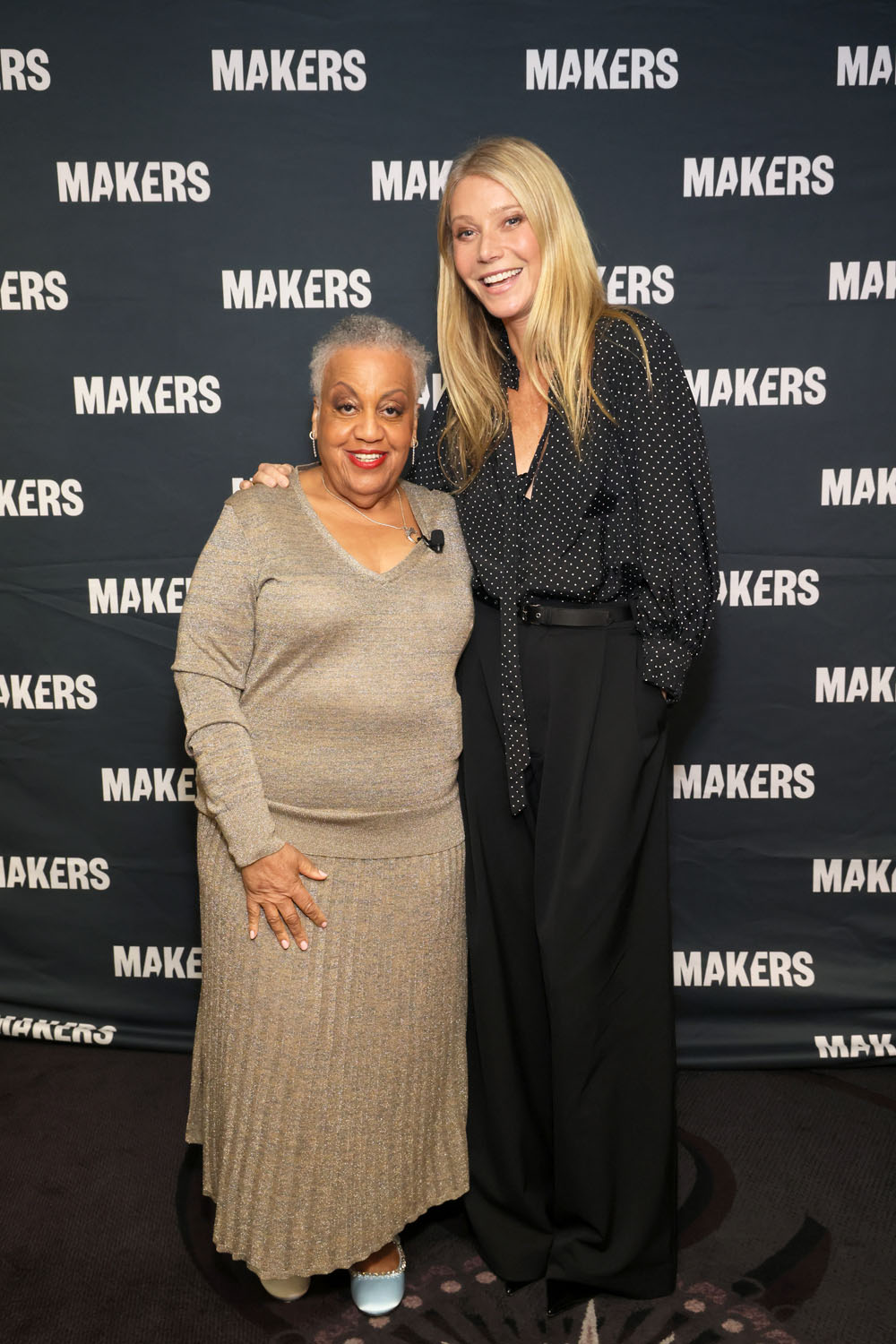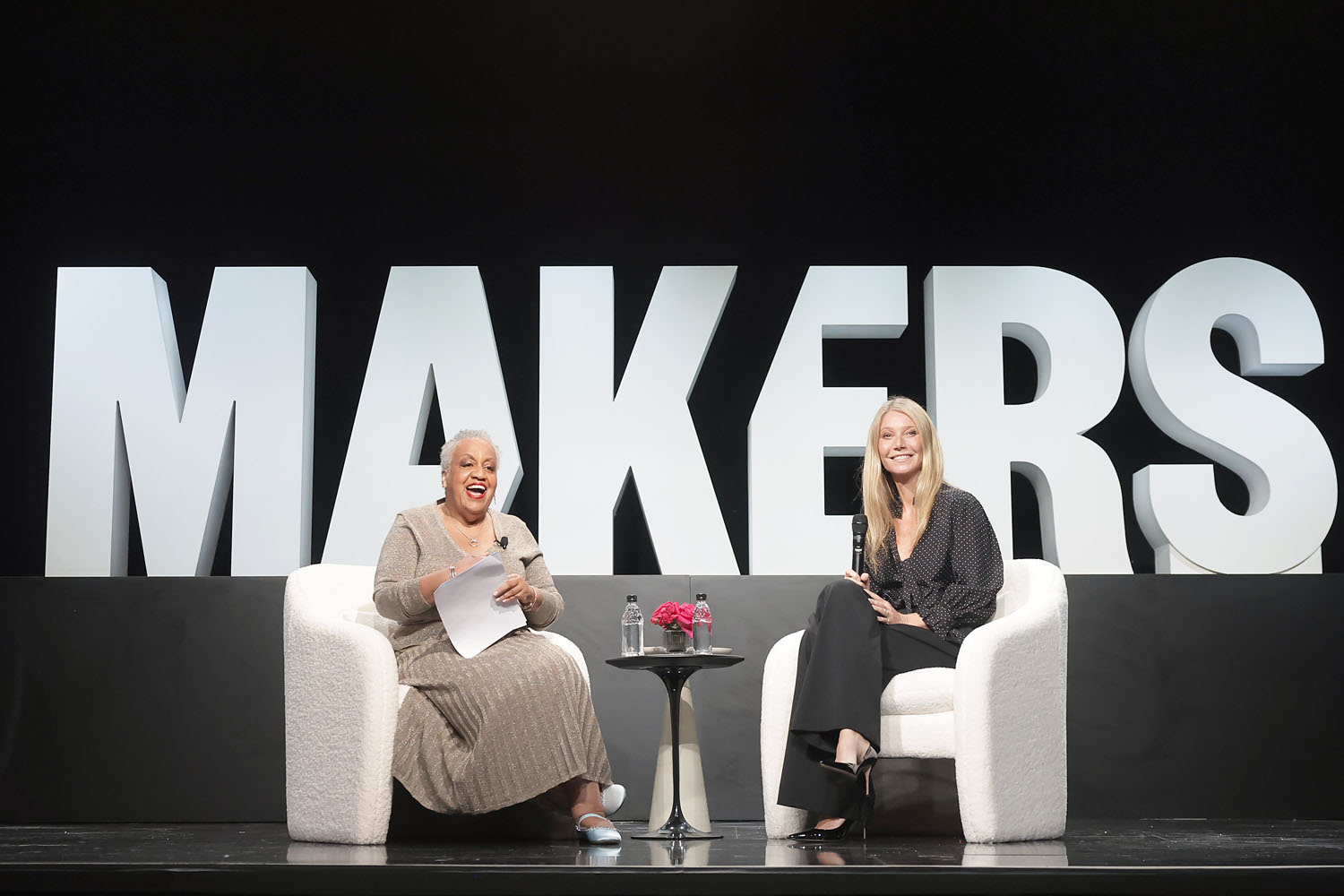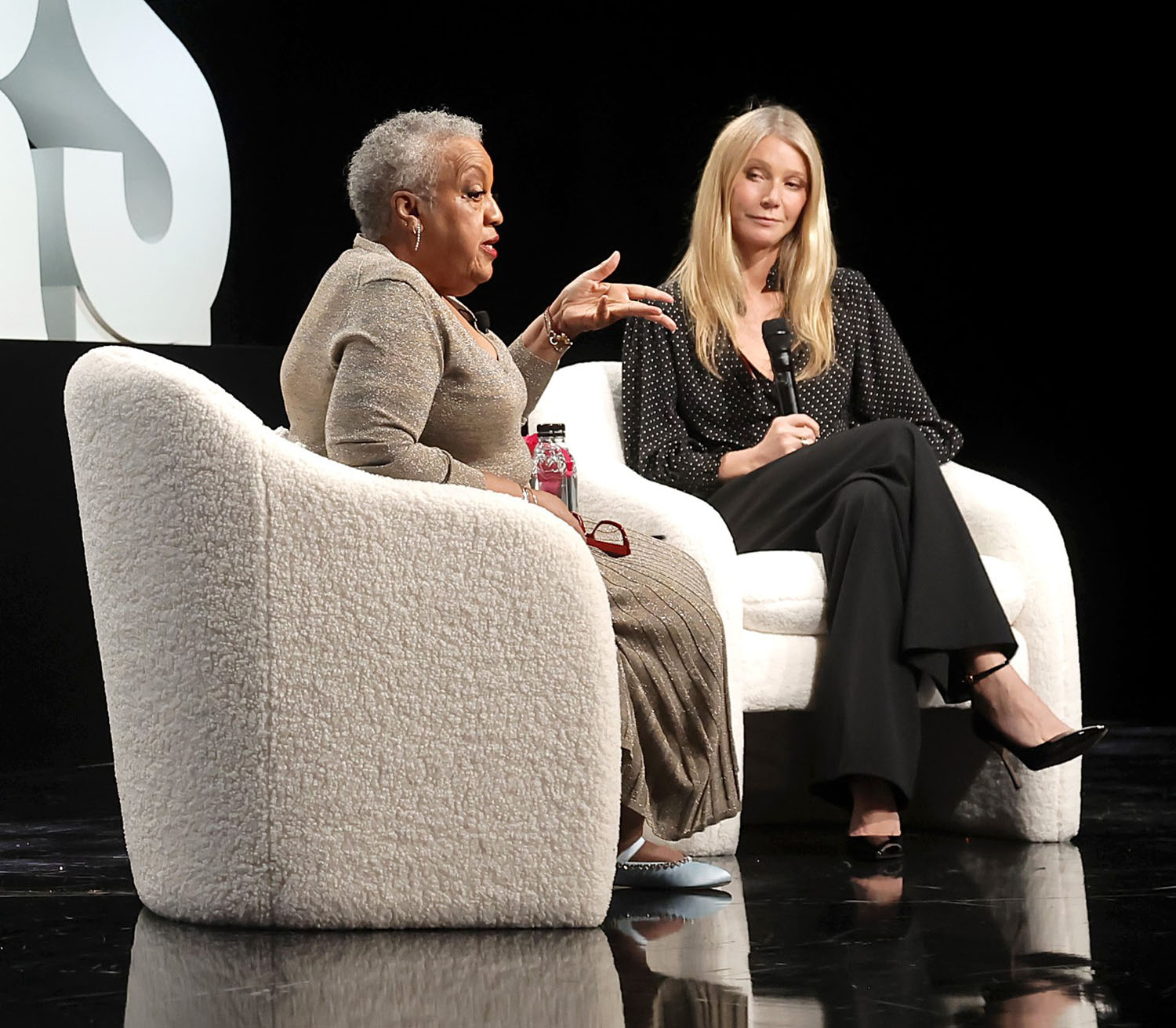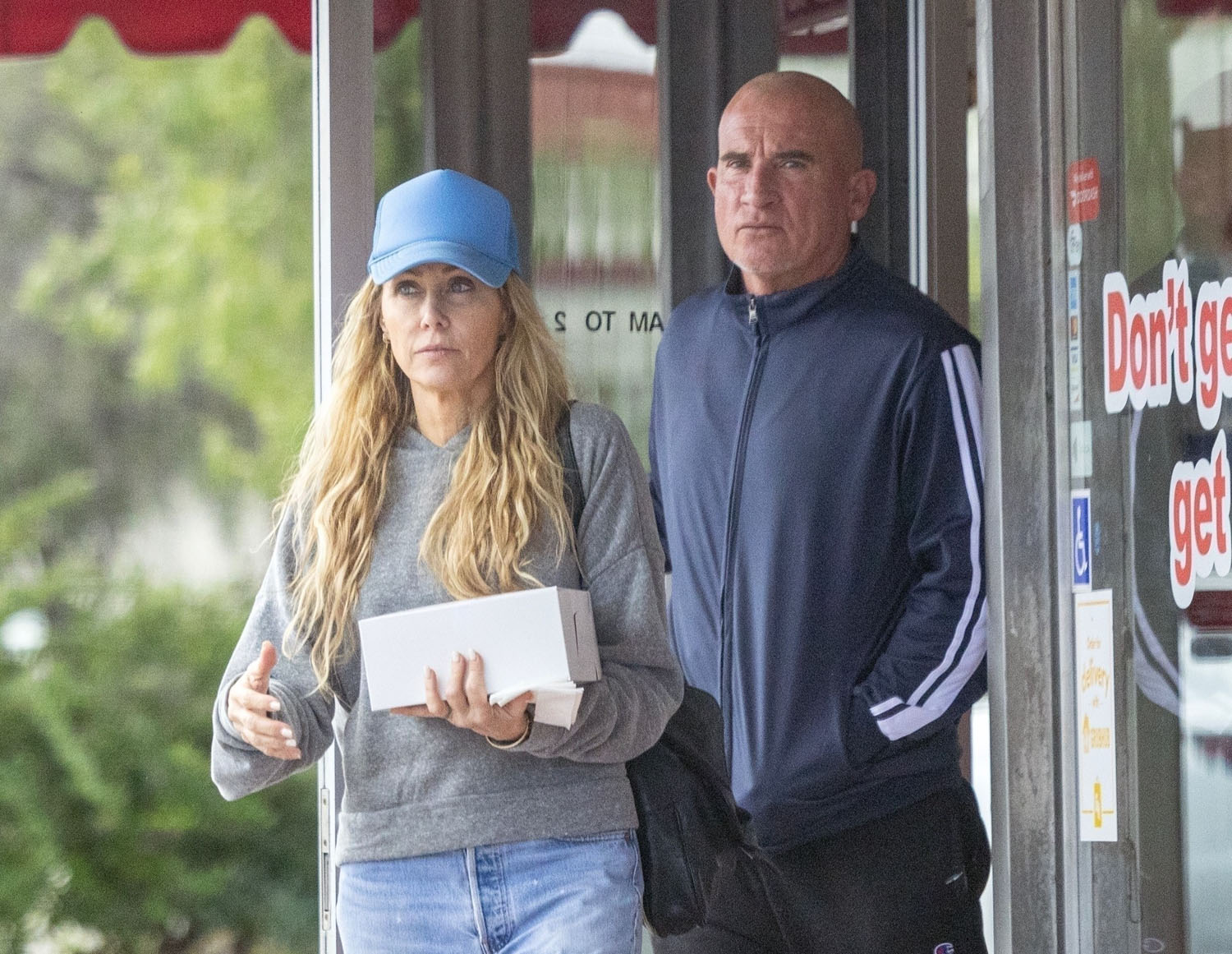“I Wish She Stopped Right There”: The Gwyneth Paltrow Story


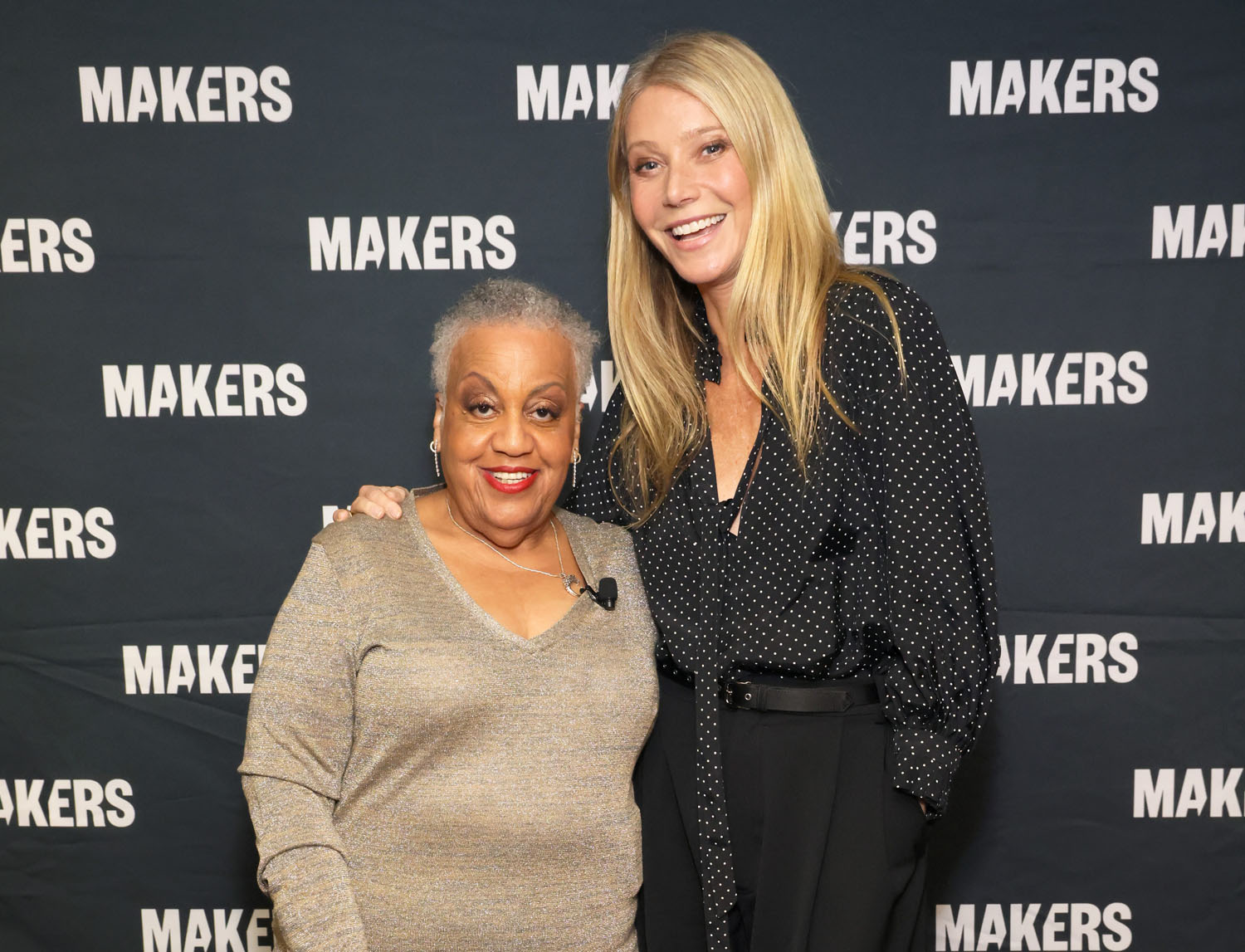
Last week, Gwyneth Paltrow attended The MAKERS Conference, and during a chat with Dr. Ella Bell, she spoke about the differences she sees when it comes to “incredible intrinsic self-honouring” and the sense of community that she sees existing between her Black women friends versus what she sees with her white women friends.
Though I wish she stopped right there, she kept going, and the further she delved into her explanation and thoughts on the topic, the more glaring three things became: the first is her audacious sense of entitlement, the second is her chronic misunderstanding of concepts like intersectionality, and the third is the danger of centering white women in conversations that at their core, are about Blackness.
"My Black women friends know themselves, love themselves, in a way that I think white women are not taught to," she explained. "I think white women are taught to be competitive with one another — which is something I've tried to work so hard to dispel, because I don't believe in competition between women — but we're raised to be competitive, to be jealous, to look over each other's shoulders," she said.
"I've learned so much from my Black friends about ruthless self-acceptance and full love of self," she said. "And I think we as white women in this culture have a lot to learn from our Black sisters and the way in which they respect themselves. And I'm not sure exactly where that comes from."
At this point of the conversation, in true Gwyneth fashion, she actually turns the question to Dr. Bell, and asks her for the answer on how white women can “start to cultivate” what Black women have. Dr. Bell’s response is even and measured, not indicative of the actual thoughts passing through her mind, which I would pay pretty decent money to be privy to.
"I can turn to the Black women in this room when I need lifting up. That's important for us. And I don't think white women have that," Dr. Bell replied.
Her turning the question to Dr. Bell is a perfect example of her astonishing entitlement. Imagine a beloved, sacred family recipe that’s taken generations to hone. Gwyneth comes over one day, tries it, thinks it’s amazing and wants it to become this new thing she can sell through GOOP. Before even sitting down at the kitchen table for tea and to establish some rapport, she’s ripping into the cupboards looking for the family recipe book, prepared to throw whatever money it takes to leave with the recipe. The ease with which she asked this question, as if trade secrets should just fall into her lap, is a reminder that Gwyneth, at her core, operates like a colonizer.
It’s a heavy assertion, I wholly appreciate that. I don’t say it lightly, either. But the reason I say it at all is because the simple definition of the word colonize is to “appropriate a place or domain for one’s own use”, and we’ve seen her do it time and time again as a person and as a business owner.
She finds highly sacred, traditional products and practices and markets them as something new and edgy, girl boss, rich white woman must have and boom, her customers buy right into it. Some of her most popular (and controversial) products, like the jade and rose quartz vaginal eggs she sold, traditionally known as yoni eggs, have deep roots in Asia and were commonly used in Taoism.
Also on display throughout this conversation is her knowledge gap about intersectionality, clear that in this case, she’s not accounting for just how much the relationship between Black women, self-love and community is tied to our race, in addition to our gender, and also our lived experiences.
Gwyneth is showing that she does not understand that Black women loving themselves to the extent we do isn’t just because we’re “better at it” or “ahead of the curve”, and that’s part of the reason she thinks it’s something that white women, too, can emulate. Black self-love is exclusively a Black experience. There is a direct correlation between the poor treatment we receive in society, the lack of representation we see of ourselves in mainstream media, the disrespect we face on a daily basis in spaces that range from public transportation to the workplace, and what she rightfully refers to as our “incredible intrinsic self-honouring”. The fact that she thinks it’s this thing that she and her army of white women customers can start working on modelling is not only a representation of her entitlement but also her gross misunderstanding of why we need to love ourselves the way we do.
But perhaps one of the reasons I find myself, to Lainey’s point, rolling my eyes and screaming at Gwyneth’s audacity, is because even in resolving to want to be more like Black women, at least in one sense, she cannot, even for a moment, not centre white women in the conversation.
Her assertion that white women, specifically, have suffered from growing up in environments that encourage competition, jealousy and push a need for woman-to-woman vigilance, is almost an erasure of the fact that Black women, all women have, too. And this idea that white women, specifically, are “taught” to be competitive with one another is a far cry from my constant claims on this site that Black women are routinely made to feel like there can only be one.
This is something I wrote about in this article, echoing the sentiment originally made by Taraji P. Henson, who challenged the too-often felt and deeply-engrained ideology that only a few will succeed. She challenged that notion in her assertion that despite the many Black celebrity-owned hair and beauty brands out there, there was indeed room for all brands and all entrepreneurs. I also wrote about it in this recent piece about the competition in the modelling industry, which undoubtedly played a huge role in the infamous and decades-long fraught relationship between Naomi Campbell and Tyra Banks.
Perhaps Gwyneth is aware that this is all of our experience. But her not taking the time and consideration to word it appropriately feeds into the exact circumstances that drives the deep love Black women have for ourselves and others that look like us. Why? Because we’re always being othered. Because our experiences are invisible to so many people outside of us. Because we don’t feel we matter until we have something someone else wants – a hairstyle, a body type, a physical feature, a movement, like feminism or #MeToo, that someone else is more likely to get the credit for. The irony of centering the white experience in a conversation about admiring the way Black women love themselves is just so not lost on me.
I’ve always argued that intent doesn’t negate impact. And I’m fully aware that Gwyneth’s intent here is actually positive, which is why there was, for the most part, warm reception to her sentiments. I know that her intention is to praise Black women for their ability to self-love, love others, and create strong communities. But the fact that her praise cannot just be praise, and must be a calling in for how women like her can also get that thing and benefit from it is where the danger lies, because not all experiences can be yours.
In misunderstanding the complexity and the nuances of how all of this directly correlates to the experiences Black women have had because of our race, experiences that can’t be imitated, duplicated or bought, Gwyneth shows that what she wants is the end result of that love, rather than to do the deeply personal and communal work that can only be done with people who you have had these shared experiences with.
"We really have to take it upon ourselves to be conscious of our thinking and our behavior, and to build bridges and to understand that somebody's not going to get more. You don't have to get less because somebody is going to get more," she said.
Again, the irony. Because she’s not sounding conscious, certainly not about her thinking. And she’s talking about who gets less and who gets more yet, historically, Black women have had to get less because everyone else is always getting more. It goes back to the argument made by Taraji when she described her mounting frustration, powerful enough to have her considering leaving Hollywood. It goes back to Keke Palmer’s point about her podcast in her interview with Bobbi Althoff. She’s been in the industry for years, Bobbi just got here. And it goes back to Issa Rae, who spoke about Black creators being marginalized as purse strings tighten and we’re shown whose stories really matter. I wrote about all of these women’s documented struggles with Hollywood here.
To go back to Dr. Bell’s response, because though even and measured, it delivered the exact message that it needed to. What her response was really saying was that the self-love you see from Black women isn’t up for grabs for non-Black people. And it’s not because we intend to keep it to ourselves out of selfishness or greed. But it is simply ours, inherently. Because of our lived experiences. Because of our struggle. And because of our acceptance. Most of all, because of our Blackness.

